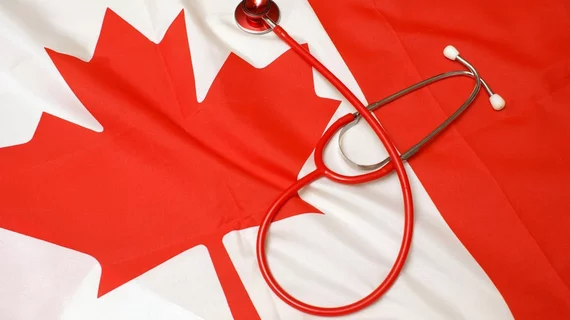Cancer survivor raises awareness of dense breast tissue throughout Canada
Imaging professionals are familiar with the complications associated with dense breast tissue. Patients and primary care providers, though, may not know the value of a woman knowing about her dense tissue and how that will affect ensuing screening practices.
The Canadian Broadcasting Company (CBC) investigated Michelle Di Tomaso’s experience with breast cancer. After four mammograms appeared normal, she was diagnosed with advanced breast cancer, with a tumor growing for at least two years.
"It was a camouflage effect, and they missed it. I said, 'They missed it for three f--king years?' And [the medical oncologist]'s like, 'It happens,'" Di Tomaso recalled in an episode of “White Coat, Black Art,” a radio program on CBC Radio.
After undergoing a double mastectomy and related treatment, Di Tomaso established Dense Breasts Canada in 2016, a non-profit foundation that raises awareness of breast density and pushes for regulations that make it easier for patients to learn if they have dense breasts.
"I just want women to know. I just didn't want it to happen to anybody else," she said.
Read more, and a related 27-minute radio program, at the link below.

